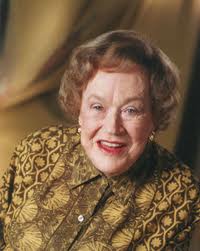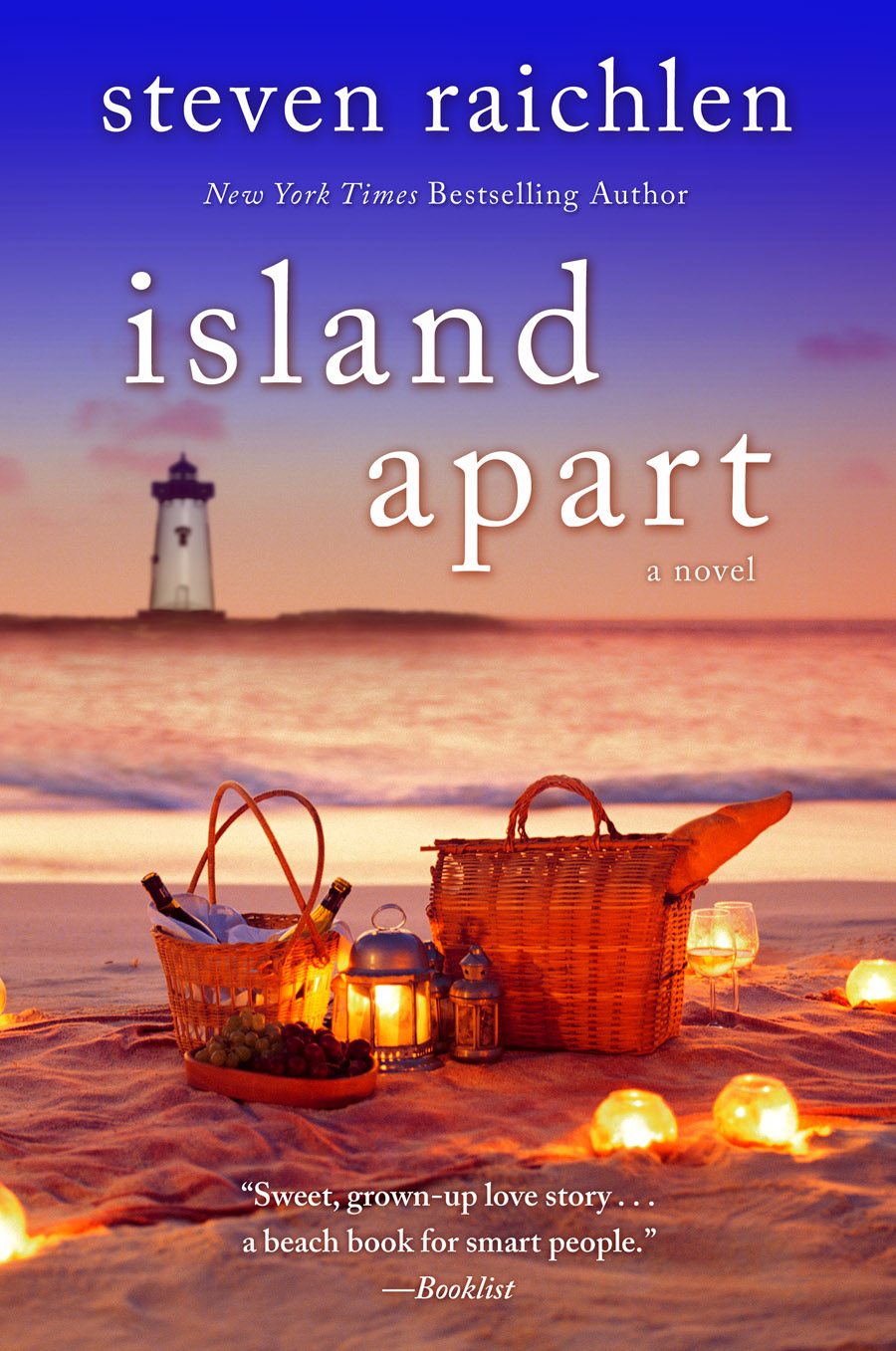Claire looked at the photo clipped to the letter. It had been taken at Adam's restaurant. A little girl sat on the Hermit's shoulders and a tall woman stood next to him: Julia Child.
Island Apart, Chapter 22 ("You Could Say We're Both Victims")
I first met Julia Child at the La Varenne cooking school in Paris. The year was 1977 and I was working as a translator and editorial assistant. For weeks, La Varenne buzzed about the upcoming visit of the most important person in the food world. To get ready, we scrubbed the school from top to bottom and planned the most ambitious menus we could think of. The day Julia arrived I wore an ugly brown sports coat and ghastly wide tie -- the only "dressy" clothes I owned. Of course, one whiplash handshake and belly laugh from Julia and I realized that to the great lady what anyone wore or looked like mattered not one whit.

Over the years, I was lucky to spend time with Julia -- at the Paris apartment of my mentor and boss Anne Willan and at Julia's homes in the south of France and in Cambridge, Massachusetts. We shopped at the same supermarket in Cambridge- Savenor's- and often dined at the same restaurants. At the time I was the restaurant critic for Boston Magazine (Julia's presence at a restaurant always made it easier for me to dine anonymously.) Julia came to my home for a caviar tasting once, gamely ascending the three flights of stairs to my apartment.
Over the years, Julia gave me -- and legions of other writers -- lots of advice about writing. Not just cookbooks, but about living the writing life in general. Her advice proved invaluable when I set out to write my first novel, Island Apart.

1. Have a thick skin and stick to what you believe in: Julia chose to write about one of the most closed, male-dominated arenas of Gallic culture: la grande cuisine francaise. She worked shoulder to shoulder with work-hardened male students (many of them ex-GIs) under tough chauvinistic French chefs at Le Cordon Bleu school in Paris. She practiced knife skills and techniques at home so she could keep up with her fellow classmates. Once she graduated, she never hesitated to don a toque and call herself a chef. When I decided to write my first novel (a love story no less!), a lot of people thought I was crazy. Julia would have urged me to stick with it.
2. Whatever you write, make it original: My first cookbook, A Taste of the Mountains Cooking School Cookbook, dealt with the classic French cuisine I learned in Paris. Julia acknowledged the book, but in her not so subtle way urged me to make my next book about a subject that hadn't been written about ad nauseum already (including by Julia) -- a subject I could make my own. One of the most satisfying aspects of writing Island Apart is that the story, while based on many personal experiences and deeply inspired by classical French cuisine, was entirely made up and my own.
3. When you find your subject, own it: I have written a lot of cookbooks -- some of them award-winners -- but it wasn't until I moved to Miami that I wrote what I consider to be my first truly original book, Miami Spice. It took leaving my comfort zone, meeting a fresh crowd of food professionals, immersing myself in a whole new set of ingredients and cuisines in the Caribbean-Latino-Deep Southern melting pot that defines Miami. When I won an IACP-Julia Child Award for the book, Julia crossed the stage to give me a hug and a kiss. She looked me in the eye as if to say that's what I was talking about. It was one of the proudest moments in my life.
4. Write it, revise it, and revise it again: Julia took great pains to get it right, testing recipes over and over (she did her French bread more than 50 times) until she was satisfied her results could be replicated with ingredients readily available in the U.S. in a typical American kitchen. Good writing takes lots of rewriting, and if I didn't know that when I started Island Apart, I sure did after the eighth draft. I'd probably be rewriting still if my publisher hadn't set a publication date.
5. Don't be afraid to take risks and make mistakes: When you dined at Julia's, you were served dishes she was in the process of testing. Maybe they worked and maybe they didn't. I remember one soup served in a Hubbard squash that collapsed at the table. Writing a novel took me away from a lot of lucrative assignments and generated a lot of raised eyebrows in the barbecue world, but I wouldn't have wanted to leave this planet without having tried.
6. Reinvent yourself: Julia made her mark by bringing classical French cuisine to North America. But she didn't stop there. She later wrote about regional American cuisine. And when she felt like she had done all she could do herself, she brought the top chefs of her day on her TV show. She kept reinventing herself, applying what defined Julia Child -- her clear instructions, her meticulous recipes -- to topics far from her original French cuisine. To the skeptics who wonder why I turned to fiction, I say remember Julia Child.
To learn more about Island Apart (including a video of the author on Chappaquiddick and recipes inspired by the story), please visit www.stevenraichlen.com.
Steven Raichlen is the author of The Barbecue! Bible Cookbook Series and the host of Primal Grill on PBS. His web site is www.barbecuebible.com. Island Apart is his first novel.
